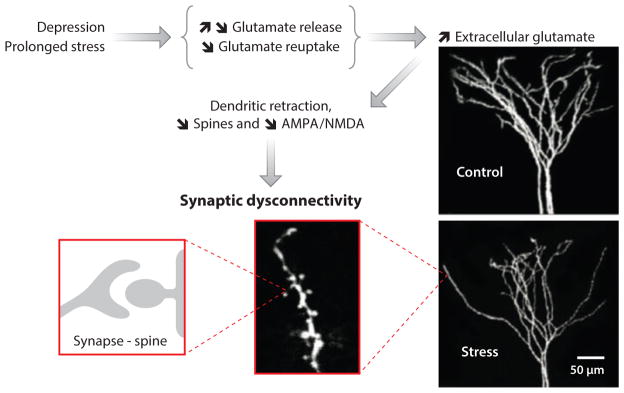Figure 1.

A schematic representation of the proposed neurobiological model of depression. In this model, prolonged stress and depression alter prefrontal glutamate release and reduce glutamate uptake, leading to increased extracellular glutamate and excitotoxicity. High levels of extracellular glutamate precipitate neuronal atrophy through dendritic retraction, reduced dendritic arborization, decreased spine density, and reduced synaptic strength. An example of the effect of prolonged stress on dendritic arborization and length in rats is shown on the right.
